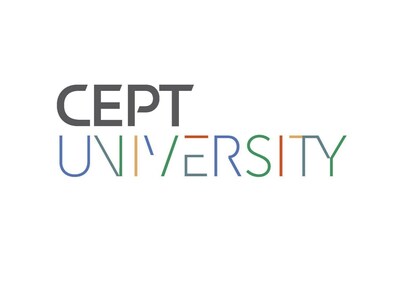| News | |||
|
|
|||
CEPT University Hosts Three Day Global South Academic Conclave on WASH and Climate 2025 |
|||
| 24-2-2025 | |||
~ Participants from 30 countries on CEPT campus from February 21 to 23, 2025 AHMEDABAD, India, Feb. 24, 2025 /PRNewswire/ -- The second edition of the Global South Academic Conclave (GSAC) on WASH and Climate 2025 commenced on February 21 at CEPT University. Organized by the Center for Water and Sanitation (CWAS) at CEPT Research Development Foundation (CRDF) and the Faculty of Planning at CEPT University, with support from the Bill & Melinda Gates Foundation and the Viega Foundation, the three-day conclave brought together experts and stakeholders to address critical challenges in water, sanitation, and hygiene (WASH) amidst changing climates. The key highlight of the opening day was the launch of the PAS@15 report, celebrating 15 years of the Performance Assessment System (PAS). This digital platform for urban WASH performance assessment in India, developed by CWAS, has become a vital tool for data-driven improvements in water, sanitation, and climate resilience. Since its launch in 2009, PAS has expanded its reach from 414 to over 800 cities in the states of Gujarat, Maharashtra, Telangana, Chhattisgarh, Jharkhand, Assam and Sikkim, covering a population of 115 million, making it the country's largest WASH and climate-linked database for urban areas. With climate change exacerbating water scarcity, sanitation challenges, and waste pollution, data-driven solutions such as PAS are critical for climate-resilient urban planning. By tracking water efficiency, sanitation infrastructure, and solid waste management, PAS empowers cities to build a sustainable and climate-smart future. PAS has shown that measuring performance can lead to measurable impacts. As cities face climate uncertainties, data-driven governance will be the foundation for sustainable, resilient, and equitable urban development. Post the launch of the report, faculty members and Heads of CWAS, Prof Dinesh Mehta and Prof Meera Mehta reflected on the 15-year journey of the initiative and shared the report's key findings. CWAS has been working on urban water and sanitation-related action research since 2009. CWAS began its work when CEPT University received a grant from the Gates Foundation for Performance Assessment System (PAS) Project. Over the past decade, the project has developed an online system, methods, and processes for performance assessment and improvement for urban water supply and sanitation in India. The full report is available on https://cwas.org.in/cwas-resources/fifteen-years-of-performance-assessment-system-pas Delivering the opening address, Professor Barjor Mehta, President, CEPT University, highlighted the importance of academic gatherings focused on climate change. He stressed the power of academia to bring diverse stakeholders together to build consensus and drive action. "We, the academia, are the custodians of knowledge, experience and the drive towards addressing the issues of climate change. We must document the developments and foster an active community so that we can continue contributing towards policymaking in the years to come," he said. Over the next two days, the conclave featured discussions on a wide range of topics, including WASH outcome monitoring, governance and financing for climate-resilient WASH, and the intersection of WASH, climate, and urban planning. Keynote addresses were delivered by K Srinivas, Secretary, Ministry of Housing and Urban Affairs, Government of India; Ms. Sheela Patel, Society for the Promotion of Area Resource (SPARC); Ms. Sunita Narain, CSE; Mr. Rakesh Mohan, Centre for Social and Economic Progress; Mr. Rick Johnston, World Health Organization (WHO); Mr. Ashok Khosla, Development Alternatives and Mr. Kalanithy Vairavamoorthy, International Water Association (IWA). About CEPT University CEPT University is a recognized leader in education and research in the areas of architecture, planning, design, technology and urban management. Its teaching programs aim to build thoughtful professionals and its research programs deepen understanding in its areas of expertise. CEPT University also undertakes advisory projects to support the national, state and city governments and large sections of private industry. Through its education, research and advisory activities, the University strives to contribute to enriching the lives of people in India's villages, towns and cities. The University comprises five faculties: viz. the Faculty of Architecture, the Faculty of Planning, the Faculty of Technology, the Faculty of Design, and the Faculty of Management. In December 2023, CEPT University was recognized by the Government of India as a Centre of Excellence in Urban Planning and Design. This comes with an endowment of Rs. 250 Crore to be used towards the research and training on India specific knowledge in Urban Planning and Design over the next 25 years. CEPT University was established by the CEPT University Act of 2005 enacted by the government of Gujarat. It was originally started in 1962 as the School of Architecture supported by the Ahmedabad Education Society. The Department of Scientific and Industrial Research (DSIR) of the Government of India recognizes the University as a Scientific and Industrial Research Organization (SIRO). CEPT University is recognized as a Center of Excellence by the Government of Gujarat. CEPT University has over 30 ongoing collaborations and exchange programs with top-ranked universities across the world. Photo: Source: PTI |
|||
 9911796707
9911796707

 Logo:
Logo:  (Disclaimer: The above press release comes to you under an arrangement with PRNewswire and PTI takes no editorial responsibility for the same.). PTI PWR PWR
(Disclaimer: The above press release comes to you under an arrangement with PRNewswire and PTI takes no editorial responsibility for the same.). PTI PWR PWR